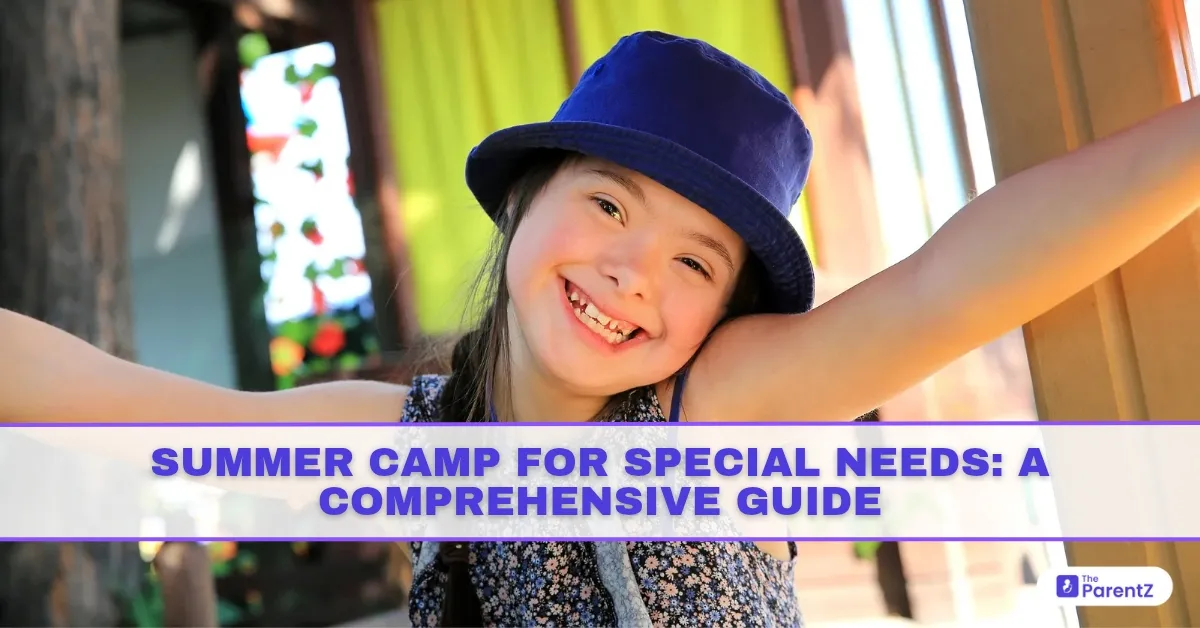Sending a child to summer camp is a big step for any parent. But when your child has special needs, that decision can feel even heavier. There’s a lot of fear, doubt, and questions that come with it. “Will they be safe?” “Will someone understand their needs?” “What if they have a meltdown and no one knows what to do?”
Many of us hesitate when we see summer camp brochures showing activities our children have never managed independently. It's completely understandable to feel apprehensive. Yet for many families, taking this step has proven to be a turning point in their children's development.
This guide covers everything parents need to consider – the valid concerns, the potential benefits, how to find the right camp, and most importantly, how to prepare both parents and children for this important step. Whether your child has autism, physical disabilities, sensory processing issues, intellectual disabilities, or any other special needs, this guide aims to help you make informed decisions that work for their unique situations.
Why You’re Worried (And That’s Okay)
You’ve spent years being your child’s therapist, nurse, and cheerleader. You know how they react when their routine changes or when someone doesn’t understand their gestures. The thought of a camp counsellor not noticing your child’s “I’m overwhelmed” signs? Terrifying.
- “What if they don’t eat because the food texture is wrong?”
- “What if they have a meltdown and no one knows how to calm them?”
- “What if they feel abandoned?”
These fears are valid. You’re not overprotective—you’re a parent who’s seen how hard the world can be for your child.
Why Camp Might Still Be Worth It
Let’s not pretend camp is magic. It’s messy, loud, and unpredictable—but it can also help your child in ways therapy or school can’t.
- Independence: At home, you might tie their shoes or cut their food. At camp, they’ll try (and maybe fail) to do it themselves. That’s growth.
- Social Skills: Your child might finally meet someone who “gets” them. For once, they’re not the “different kid”—they’re just another camper.
- A Break for You: Let’s say it—you’re exhausted. A week without managing meltdowns or therapy schedules can help you recharge.
What to Look for in a Camp?
1. Staff Who “Get It”
Staff training matters most. Ask detailed questions:
- How many staff members have worked with kids like mine? (If your child is nonverbal, ensure counselors know alternative communication methods.)
- What's the staff-to-camper ratio? (1:2 or 1:3 is ideal for children with significant needs)
2. Safety Nets
- Medical staff on-site?
- Quiet spaces for sensory overload?
- A clear plan for meltdowns (not just time-outs)?
3. Flexibility
- Can they adapt activities?
- If your child can’t handle group games, can they do solo art instead?
Adaptability is crucial. Good camps adjust their activities to fit different abilities while keeping everyone included. Ask how they modify activities for various needs.
4. Transparency
Communication systems should be clear and frequent.
- Will they send you updates?
- Can you call at midday to check in?
- Is there an emergency contact available 24/7?
5. Years of Experience
Experience matters.
- How long has the camp been running programs for children with special needs?
- Can they provide references from other parents?
Necessary Precautions
Safety always comes first:
- Medication management: Ensure there's a proper system for storing and administering medications with trained staff.
- Emergency protocols: Ask about their plans for various scenarios related to your child's condition.
- Allergy awareness: If relevant, how do they prevent exposure and respond to allergic reactions?
- Behavior support plans: How do they handle meltdowns or challenging behaviors? (Avoid any place that uses punishment-based approaches)
- Visit before committing: See the facilities, meet the staff, and assess if it feels right.
Daily Scenarios to Prepare For
- Mealtime: Pack familiar snacks. Tell the camp, “My child only eats if the plate is blue,” or anything else.
- Bathroom Help: If your child needs assistance, ensure a same-gender counselor is available.
- Meltdowns: Give the camp your child’s “calm-down kit” (headphones, fidget toys, a favorite blanket).
- Homesickness: Send a photo of your family. Let your child know, “It’s okay to miss home. The camp will call me if you need me.”
How to Prep Your Child?
- Use Social Stories: Show them pictures of the camp. Say, “You’ll sleep here. If you’re scared, tell Miss Priya.”
- Role-Play: Practice asking for help. Pretend you’re a counselor: “What if I don’t understand what you want? Show me again.”
- Pack Together: Let them choose a comfort item—a stuffed toy, a sweater that smells like home.
Managing Your Own Fears
You might cry when the bus leaves. You might panic if they don’t call. That’s okay. Here’s how to cope:
- Talk to Other Parents: Find a support group. They’ll say, “My kid hated camp the first day too—now they beg to go back.”
- Trust the Process: Camps for special needs kids aren’t perfect, but they’ve seen it all. They know how to handle tantrums, refusal to eat, or midnight anxiety.
- Start Small: Try a 3-hour day camp first. See how your child reacts.
Annual Camp for Children with Special Needs
Zep Rehabilitation Centre Camp
- Location: Pimpri-Chinchwad, Maharashtra
- Details: Annual summer camps (May) with creative activities, puppet shows, and life-skills training for special needs children.
- Contact: Visit Zep Rehab for schedules.
When Camp Doesn’t Work Out
It’s okay if your child hates it. Maybe the noise was too much, or they missed you too badly. That doesn’t mean you failed. Use it as a learning experience: “Next time, we’ll find a quieter camp,” or “We’ll try again when they’re older.”
Conclusion
Camp isn’t about “fixing” your child. It’s about giving them—and you—a chance to breathe. Some days will be hard. Some days, they’ll surprise you. And when they come home, covered in paint and babbling about a new friend, you’ll realize they’re stronger than you both knew.








Be the first one to comment on this story.